
Temuco: The Heart of Chile's Araucanía Region
Temuco, nestled in the picturesque Araucanía region of Chile, offers a unique blend of cultural heritage and natural beauty. This vibrant city is known for its rich Mapuche roots, which are evident in its local markets, museums, and festivals. Visitors can explore the Museo Regional de la Araucanía to learn about the indigenous Mapuche people and their history. The city's bustling Feria Pinto market is a great place to sample traditional Mapuche cuisine and buy handmade crafts. Nature lovers will be captivated by Temuco's surroundings. The city is a gateway to several national parks, including the stunning Conguillío National Park, home to the active Llaima Volcano and the pristine Lake Conguillío. Outdoor activities such as hiking, bird-watching, and fishing are popular in these areas. The nearby Cerro Ñielol Natural Monument offers panoramic views of Temuco and is perfect for a day hike. Temuco also boasts a lively cultural scene. The city hosts numerous events throughout the year, including the Temuco International Film Festival and various music and dance performances. The city's architecture is a mix of traditional and modern, with notable landmarks such as the Temuco Cathedral and the historic Teodoro Schmidt Square. With its rich cultural tapestry and natural wonders, Temuco provides a memorable experience for every traveler.
Local tips in Temuco
- Visit Feria Pinto early in the morning for the freshest produce and Mapuche delicacies.
- Wear comfortable hiking shoes if you plan to explore Cerro Ñielol or any national parks.
- Check the local festival calendar to experience traditional Mapuche celebrations.
- Try the local dish called 'muday', a traditional Mapuche fermented drink.
- Learn a few basic phrases in Mapudungun, the language of the Mapuche, to enhance your cultural experience.
Temuco: The Heart of Chile's Araucanía Region
Temuco, nestled in the picturesque Araucanía region of Chile, offers a unique blend of cultural heritage and natural beauty. This vibrant city is known for its rich Mapuche roots, which are evident in its local markets, museums, and festivals. Visitors can explore the Museo Regional de la Araucanía to learn about the indigenous Mapuche people and their history. The city's bustling Feria Pinto market is a great place to sample traditional Mapuche cuisine and buy handmade crafts. Nature lovers will be captivated by Temuco's surroundings. The city is a gateway to several national parks, including the stunning Conguillío National Park, home to the active Llaima Volcano and the pristine Lake Conguillío. Outdoor activities such as hiking, bird-watching, and fishing are popular in these areas. The nearby Cerro Ñielol Natural Monument offers panoramic views of Temuco and is perfect for a day hike. Temuco also boasts a lively cultural scene. The city hosts numerous events throughout the year, including the Temuco International Film Festival and various music and dance performances. The city's architecture is a mix of traditional and modern, with notable landmarks such as the Temuco Cathedral and the historic Teodoro Schmidt Square. With its rich cultural tapestry and natural wonders, Temuco provides a memorable experience for every traveler.
When is the best time to go to Temuco?
Iconic landmarks you can’t miss
Plaza Anibal Pinto
Experience the vibrant heart of Temuco at Plaza Aníbal Pinto, a cultural hub with lush gardens, local flavors, and historical significance.
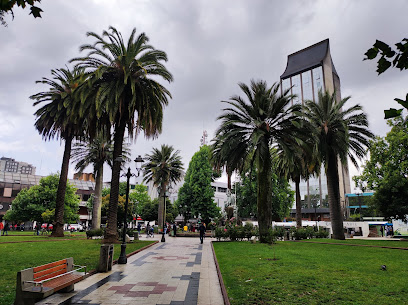
Estadio Germán Becker
Experience the passion of Chilean sports at Estadio Germán Becker, a landmark stadium in Temuco with a rich history and vibrant atmosphere.
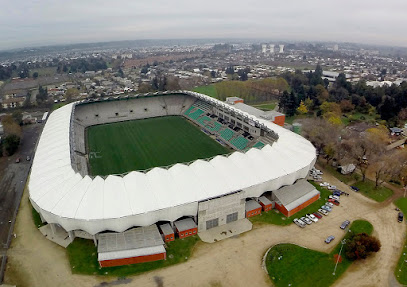
Parque Nacional Conguillio
Explore the breathtaking beauty of Parque Nacional Conguillio, a national park in Araucanía Region, home to stunning landscapes and diverse wildlife.
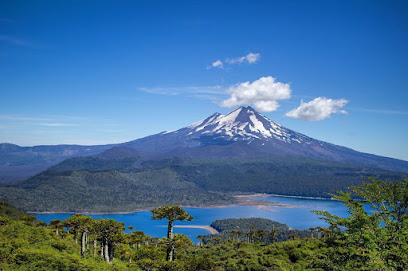
Cerro Ñielol
Discover the natural beauty of Cerro Ñielol, a stunning park in Temuco, Chile, perfect for hiking and immersing yourself in the tranquility of Araucanía's landscapes.
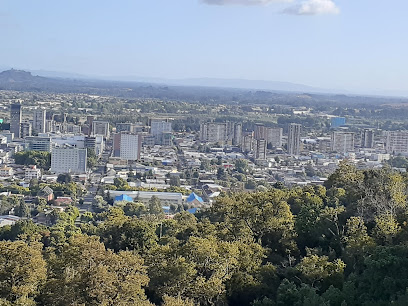
Museo Nacional Ferroviario Pablo Neruda
Explore the rich history of railroads at Museo Nacional Ferroviario Pablo Neruda, a captivating museum in Temuco showcasing vintage trains and interactive exhibits.
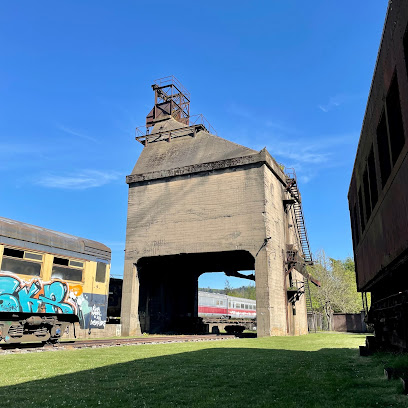
Araucanía Airport (Temuco)
The main airport of the Araucanía Region, offering modern facilities and convenient access to Temuco and southern Chile's scenic landscapes.
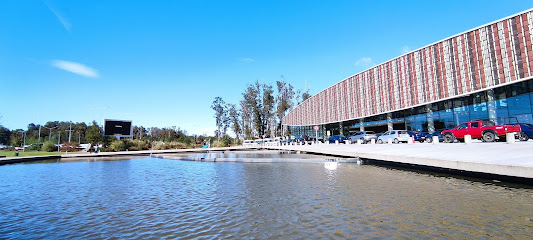
Cautín Island Urban Park
Discover Temuco's vibrant culture and natural beauty at Cautín Island Urban Park, a green oasis for relaxation and recreation.
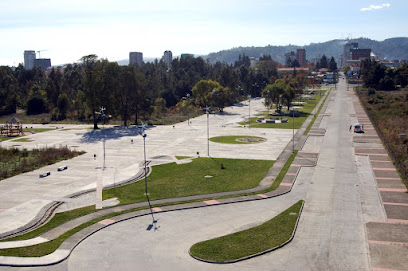
Reserva Nacional Malalcahuello
Discover the breathtaking landscapes and rich biodiversity of Reserva Nacional Malalcahuello, a must-visit national reserve in Chile's Araucania region.
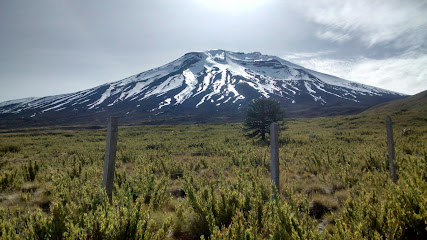
Torreon de los Canelos
Discover the rich history and stunning views at Torreon de los Canelos, a must-visit historical landmark in Valdivia, Chile.
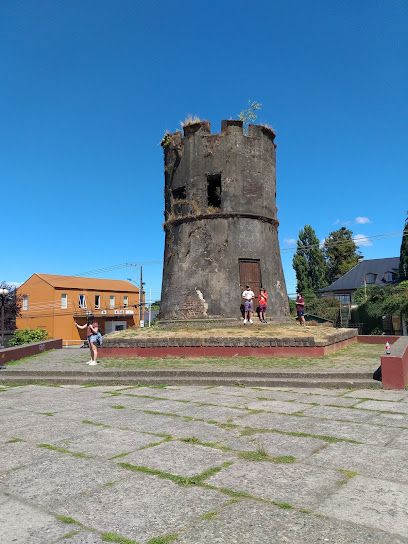
El Salto Donguil Gorbea
Discover the breathtaking beauty of El Salto Donguil Gorbea, a stunning waterfall in Araucania, Chile, perfect for nature lovers and adventure seekers.
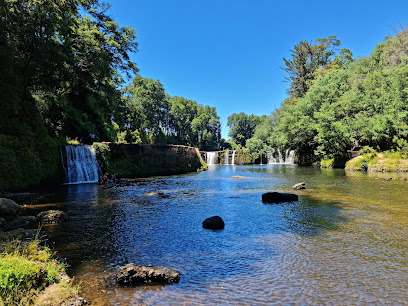
Museo Regional de La Araucanía
Discover the rich cultural heritage of the Araucanía region at the Museo Regional, housed in the historic Casa Thiers in Temuco.
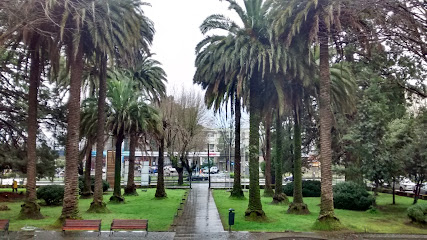
St. Joseph Cathedral, Temuco
Discover the architectural beauty and spiritual serenity of St. Joseph Cathedral in Temuco - a must-visit landmark for every traveler.
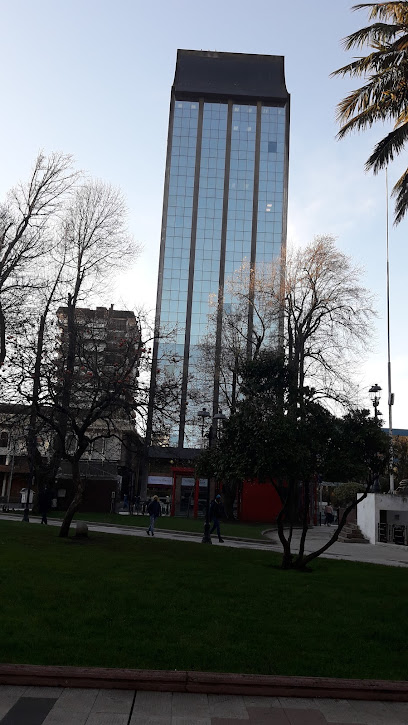
Mirador Isla Cautín
Experience the tranquil beauty of Mirador Isla Cautín, a serene park in Temuco perfect for relaxation and stunning natural views.
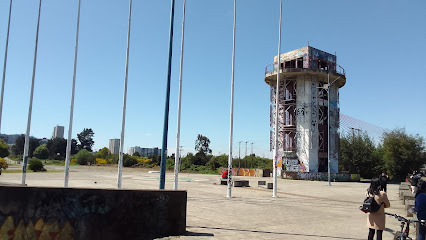
Monumento a Caupolicán
Explore the Monumento a Caupolicán in Temuco, a remarkable sculpture honoring indigenous heritage and a key historical landmark in Chile.
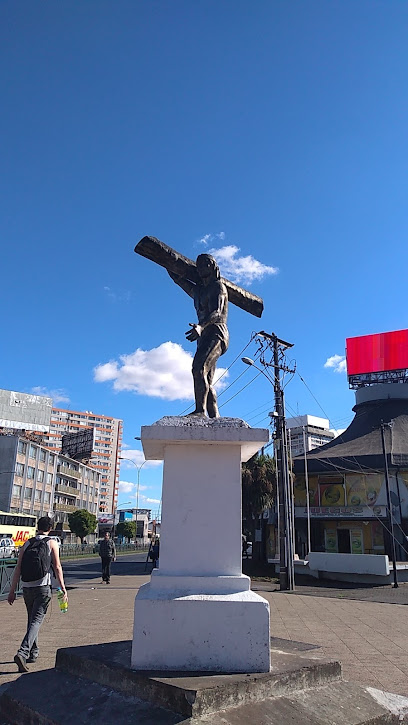
Monumento a La Araucanía
Explore the Monumento a La Araucanía in Temuco, an artistic symbol of Mapuche culture amid beautiful landscapes, perfect for reflection and discovery.
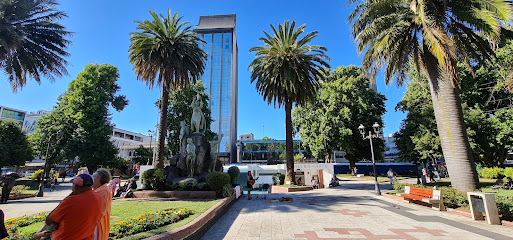
Unmissable attractions to see
Mirador Playa Pucará Park
Experience the breathtaking landscapes and tranquility at Mirador Playa Pucará Park in Villarrica, a perfect retreat for nature lovers and outdoor enthusiasts.
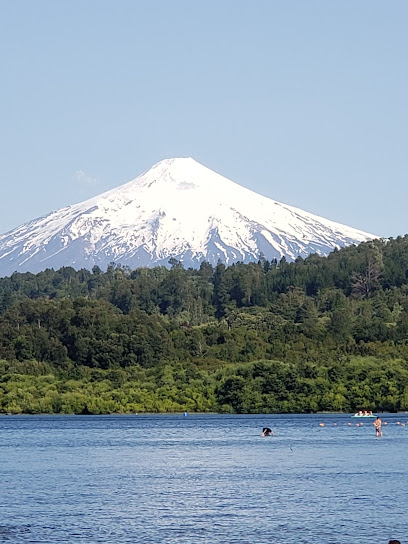
Casino Dreams Temuco
Discover the thrill of gaming, exquisite dining, and vibrant nightlife at Casino Dreams Temuco, a premier entertainment destination in Araucanía.
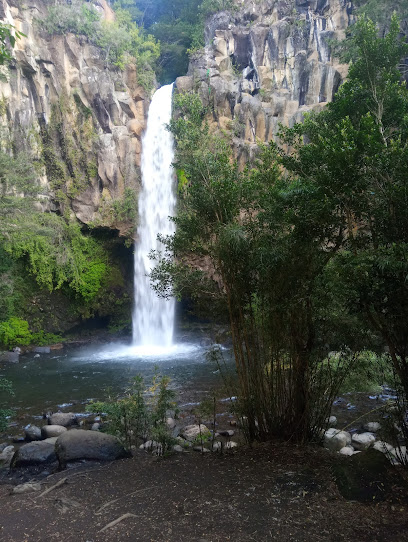
Parque Nacional Conguillio
Explore the breathtaking beauty of Parque Nacional Conguillio, a national park in Chile filled with stunning landscapes, unique wildlife, and outdoor adventures.
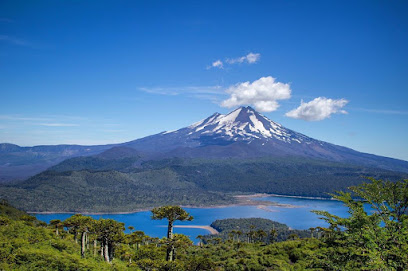
Cerro Ñielol
Explore Cerro Ñielol in Temuco, Chile – a breathtaking park with stunning views, rich wildlife, and cultural heritage waiting to be discovered.
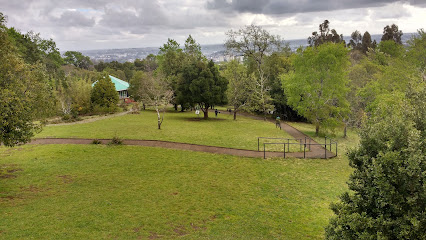
Museo Nacional Ferroviario Pablo Neruda
Explore the Museo Nacional Ferroviario Pablo Neruda in Temuco, a captivating museum showcasing Chile's railway history and the legacy of poet Pablo Neruda.
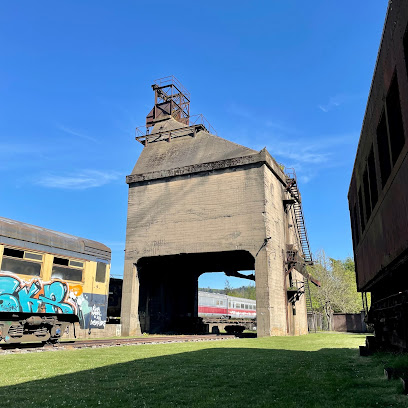
Salto de la Princesa
Discover the stunning Salto de la Princesa waterfall in Araucania, Chile, a breathtaking natural wonder surrounded by lush landscapes and adventure.
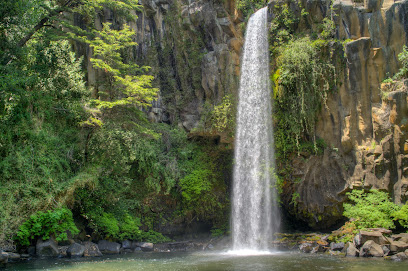
Cautín Island Urban Park
Discover Cautín Island Urban Park in Temuco, a serene urban oasis perfect for nature lovers and families looking to unwind and explore.
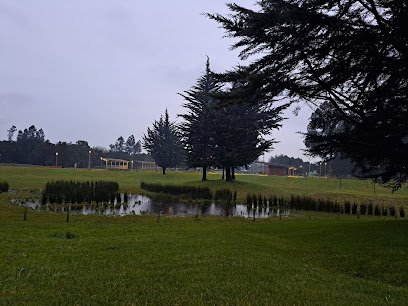
Plaza De Armas
Discover the charm of Plaza De Armas in Nueva Imperial, a serene park perfect for relaxation, cultural immersion, and enjoying the beauty of Araucanía.
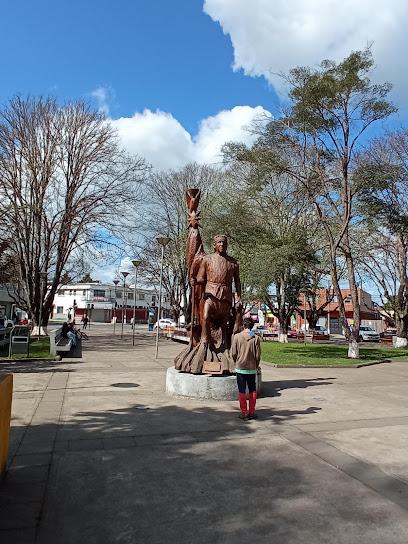
Canteras De Deuco
Experience the breathtaking landscapes and geological wonders of Canteras De Deuco, a natural gem in Chile's Araucanía region.
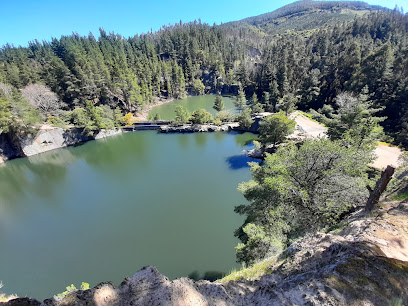
SOFO Park
Explore SOFO Park in Temuco for a vibrant mix of culture, nature, and local gastronomy, perfect for families and solo travelers alike.
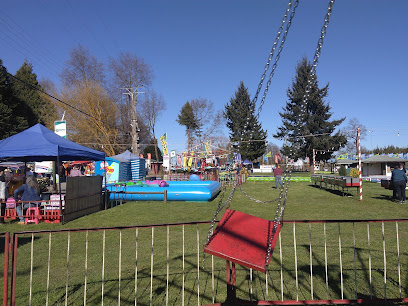
El Salto Donguil Gorbea
Experience the stunning natural beauty of El Salto Donguil Gorbea, a breathtaking waterfall in Chile's Araucanía region, perfect for adventure and relaxation.
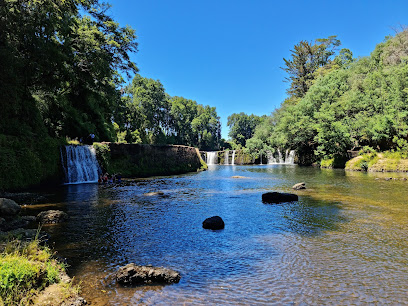
Museo Regional de La Araucanía
Explore the dynamic culture and history of Araucanía at the Museo Regional de La Araucanía, a premier destination for art and heritage enthusiasts.
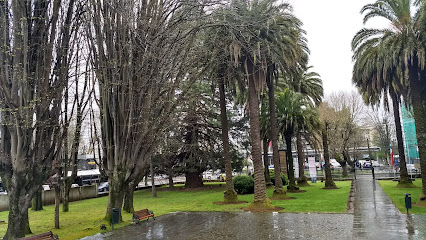
St. Joseph Cathedral, Temuco
Discover the stunning architecture and serene atmosphere of St. Joseph Cathedral in Temuco, a cultural gem in Araucanía, Chile.
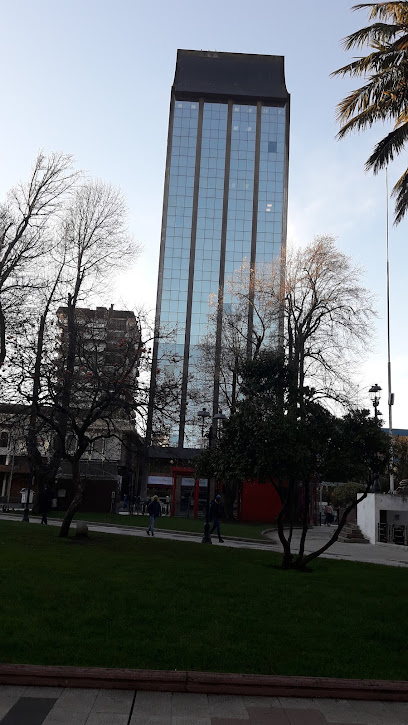
Mirador Isla Cautín
Experience the tranquility and scenic beauty of Mirador Isla Cautín, a picturesque park in Temuco, Chile, perfect for relaxation and stunning views.
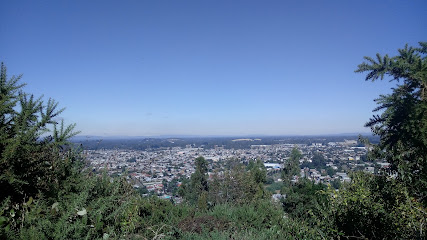
Cascada Chufquen
Experience the beauty of Cascada Chufquen in Araucania, Chile—a stunning waterfall surrounded by lush forests and scenic hiking trails.
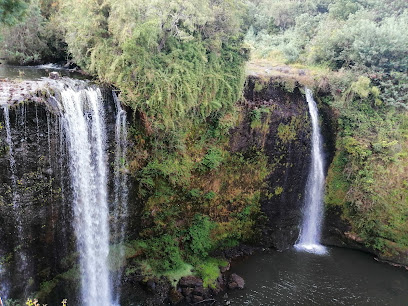
Essential places to dine
Restaurant Rapa Nui
Experience authentic Chilean cuisine at Restaurant Rapa Nui in Temuco – where every dish tells a story.
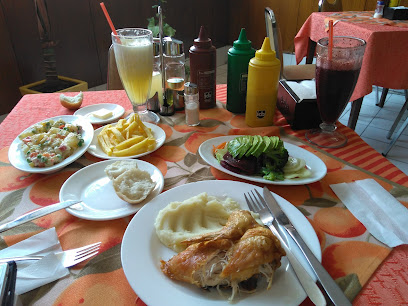
Restaurant Ñielol (Las Muñecas)
Experience authentic Chilean cuisine at Restaurant Ñielol in Temuco—where local flavors meet warm hospitality.
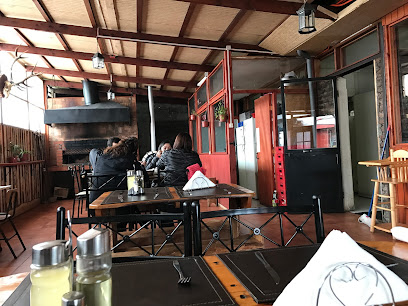
ChileSandwich
Experience authentic Chilean flavors at ChileSandwich in Temuco—where delicious meets tradition!
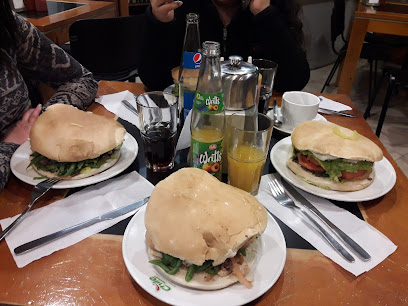
Mercato
Explore Mercato in Temuco: A culinary gem offering innovative Chilean dishes made from fresh local ingredients.
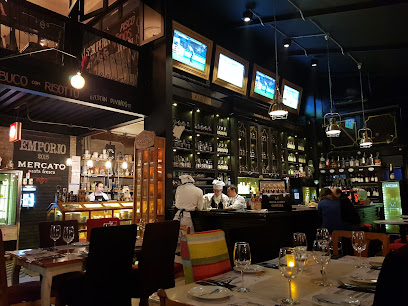
Restaurant Las Tinajas
Experience authentic Chilean cuisine at Restaurant Las Tinajas in Temuco - where tradition meets flavor in every dish.
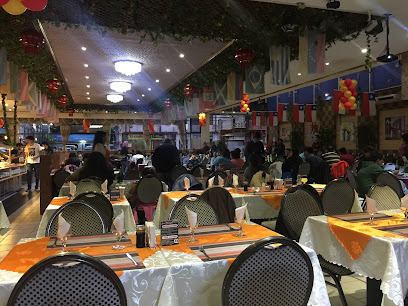
Parrilla & Restaurant El Corralero
Discover the rich flavors of Chilean cuisine at Parrilla & Restaurant El Corralero in Temuco – a culinary adventure awaits!
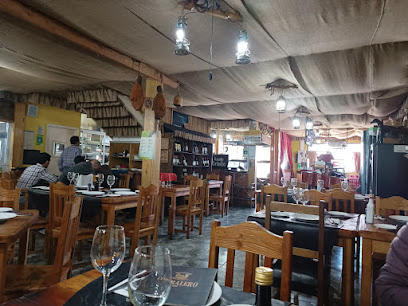
Restaurant La Caleta
Experience authentic Chilean cuisine at Restaurant La Caleta in Temuco - where fresh ingredients meet traditional flavors.
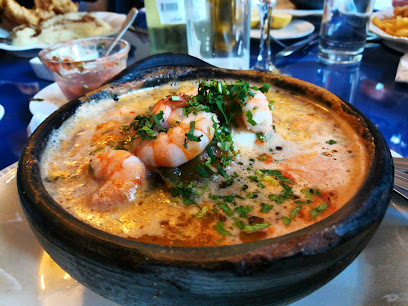
La Pampa
Experience authentic Chilean grill at La Pampa in Temuco - where tradition meets flavor in every bite.
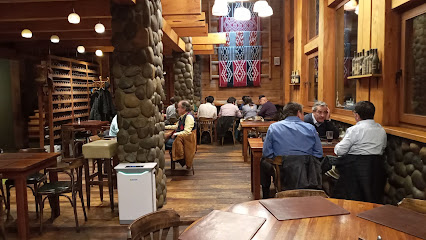
Hashigo Sushi Temuco
Savor authentic Japanese cuisine at Hashigo Sushi Temuco—where fresh ingredients meet exquisite presentation in every dish.
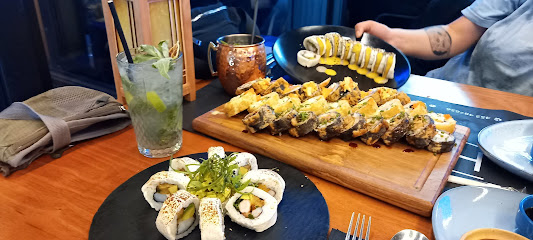
Restaurant y Cafetería Dell Maggio
Discover authentic Chilean flavors at Restaurant y Cafetería Dell Maggio in Temuco - where every dish tells a story.
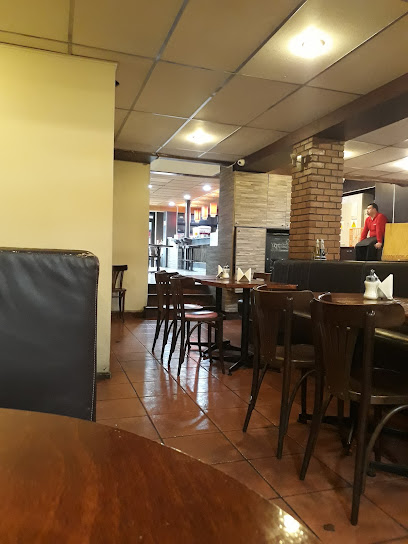
Vicuña Mackenna 530
Discover authentic Italian cuisine at Vicuña Mackenna 530 in Temuco; indulge in exquisite flavors and warm hospitality.
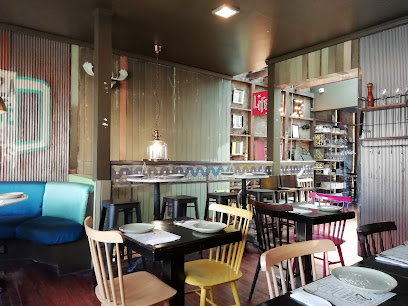
Madonna Pizza&Pasta
Discover the essence of Italian cuisine at Madonna Pizza&Pasta in Temuco - where every dish tells a story.
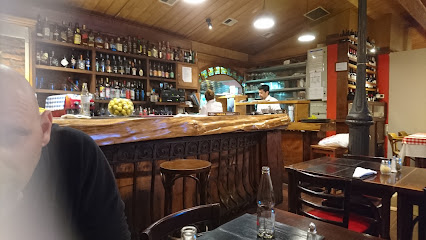
Restaurant Don Camarón
Experience exquisite French cuisine at Restaurant Don Camarón in Temuco – where family dining meets culinary excellence.
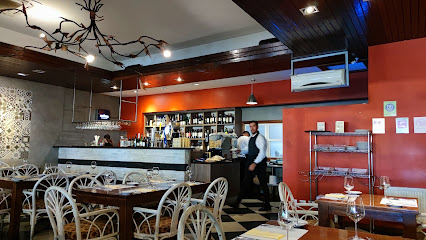
De Lechón a Salmón
Experience authentic Chilean cuisine at De Lechón a Salmón in Temuco - where fresh ingredients meet traditional flavors.
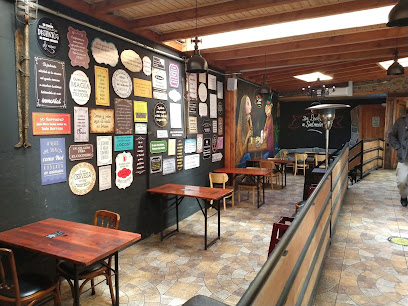
Gohan Sushi
Experience authentic Japanese cuisine at Gohan Sushi in Temuco - where tradition meets innovation in every delicious bite.
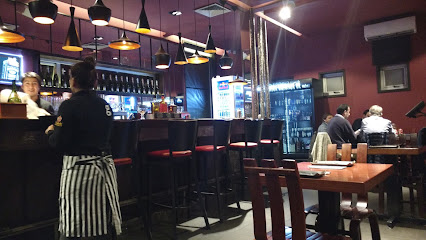
Markets, malls and hidden boutiques
Portal Temuco
Discover the ultimate shopping experience at Portal Temuco, featuring diverse shops, delicious dining, and entertainment options for the whole family.
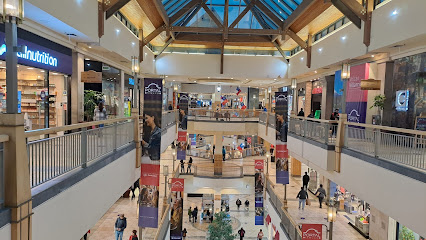
Paris
Explore Paris in Temuco for a unique shopping experience featuring home goods, children's clothing, and stylish apparel for the entire family.
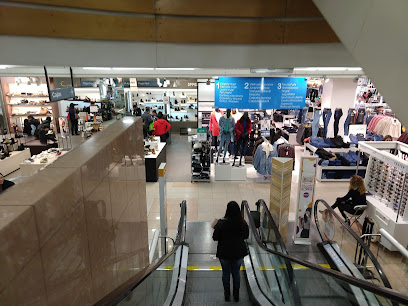
Falabella Temuco
Explore a world of shopping at Falabella Temuco, where fashion meets local culture in a vibrant department store experience.
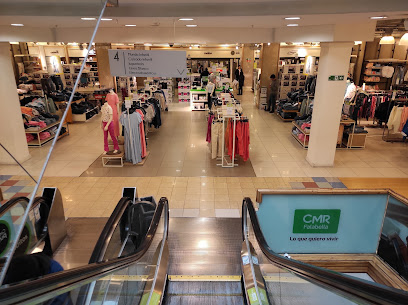
Easton Outlet Mall Temuco
Experience the thrill of shopping at Easton Outlet Mall Temuco, featuring diverse brands, delicious dining, and a family-friendly atmosphere in Araucanía.
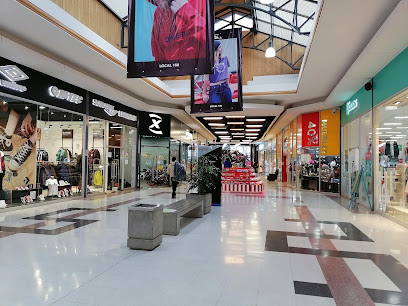
Corona
Explore Corona in Temuco for stylish clothing that blends local culture with contemporary fashion, perfect for families and fashion enthusiasts alike.
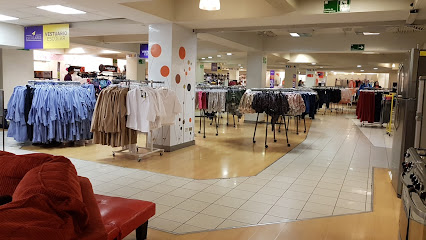
Galería Portales
Discover the heart of Temuco at Galería Portales, a shopping mall with unique shops, local flavors, and vibrant community events.
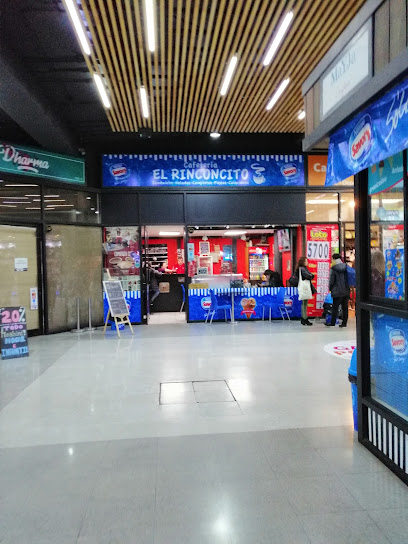
Tricot
Explore Tricot in Temuco for trendy clothing and stylish apparel that captures the essence of Araucanian fashion.
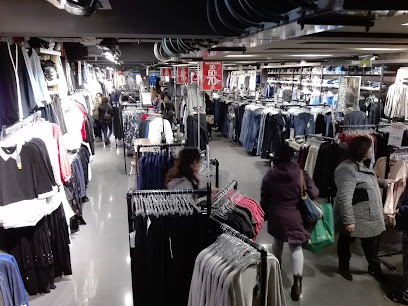
Todofiesta
Explore Todofiesta in Temuco, the ultimate destination for party supplies, costumes, balloons, and sweets that spark joy.
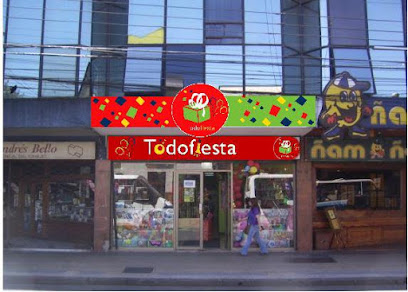
MALL CHINO
Discover the lively atmosphere of Mall Chino in Temuco, where shopping meets local culture in a vibrant department store experience.
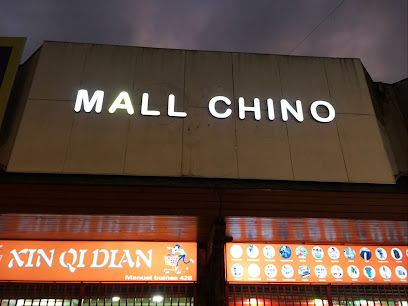
www.teregaloati.cl
Discover unique gifts and beautiful floral arrangements at Tere Galería, the heart of artisanal shopping in Temuco, Araucanía.
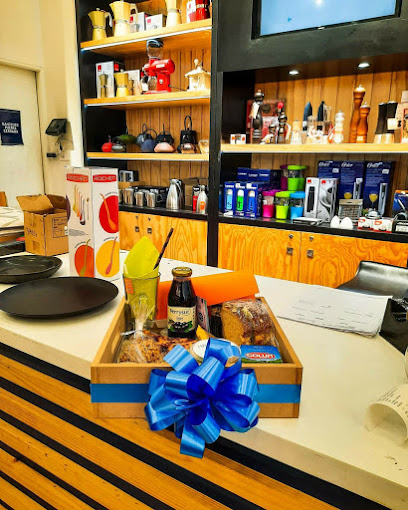
Donem
Explore Donem in Temuco for a unique selection of stylish clothing and local designer pieces that capture the essence of Chilean fashion.
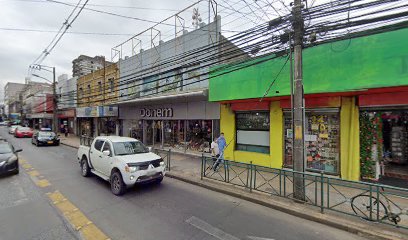
Limonada
Discover the latest fashion trends at Limonada, a stylish clothing store in Temuco, Araucanía, perfect for tourists seeking unique apparel.
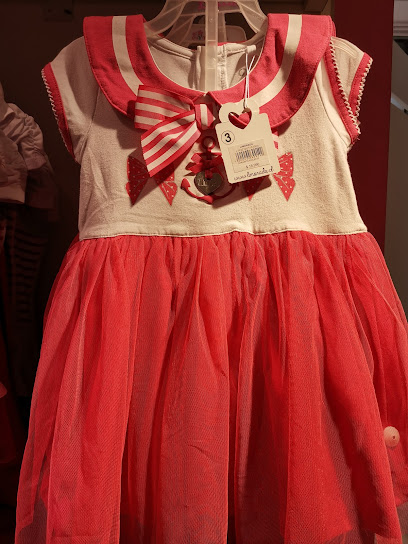
T.H.C.
Explore T.H.C. in Temuco for a unique shopping experience filled with stylish clothing and local fashion flair.
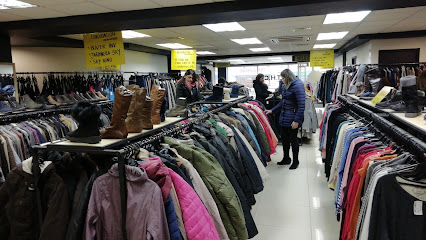
Outlet Dijon
Discover trendy apparel at Outlet Dijon, a vibrant clothing store in Temuco, Araucanía, perfect for fashion lovers seeking unique styles.
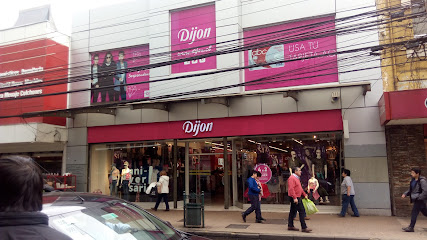
Temuki Import - Jugueteria
Discover Temuki Import in Temuco: Your one-stop destination for toys, gifts, and home goods that spark joy and creativity.
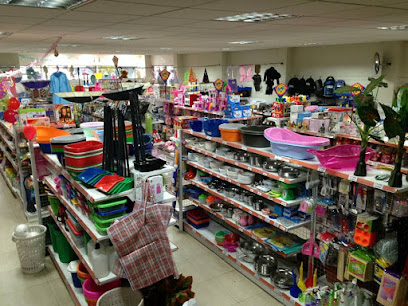
Essential bars & hidden hideouts
Resto Bar Santo Remedio
Discover the vibrant nightlife of Temuco at Resto Bar Santo Remedio, where delicious food and drinks meet a lively atmosphere.
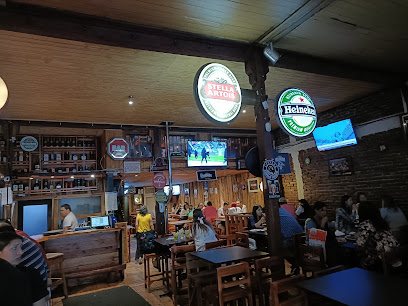
Beermania
Experience the best of Temuco’s beer scene at Beermania, where delicious food meets an extensive selection of local and international brews.
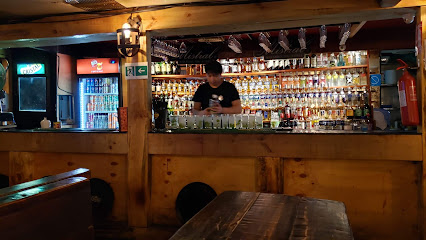
Infame Restobar
Discover the lively Infame Restobar in Temuco, where vibrant nightlife meets delicious Chilean cuisine in a welcoming atmosphere.
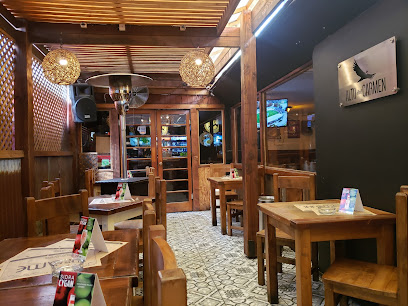
JarBar
Discover the vibrant flavors of Temuco at JarBar, a gastropub celebrated for its innovative dishes and inviting atmosphere.
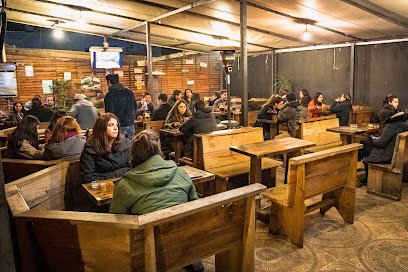
Che Carlitos
Experience the vibrant nightlife at Che Carlitos in Temuco, where authentic local flavors and friendly service await every traveler.
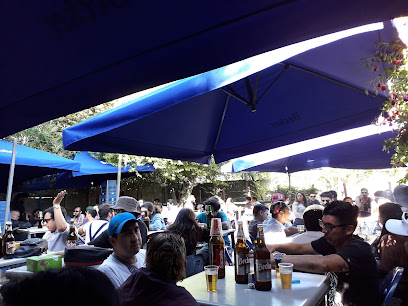
Farolito Bar
Discover the vibrant atmosphere and delicious cuisine of Farolito Bar in Temuco, where local flavors meet an exciting nightlife.
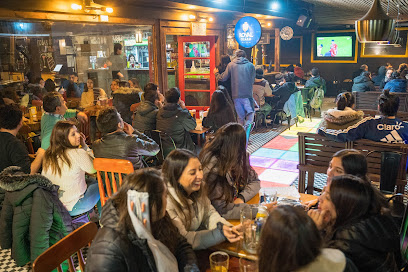
Patiperro
Discover the heart of Temuco's nightlife at Patiperro—where local flavors meet vibrant atmosphere in a trendy bar setting.
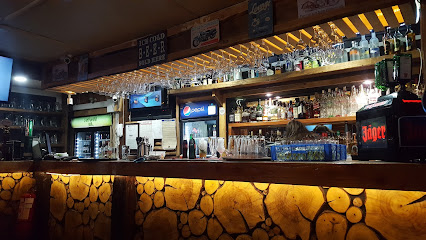
Plan B
Experience the vibrant nightlife of Temuco at Plan B, a lively bar known for its friendly atmosphere and diverse drink selection.
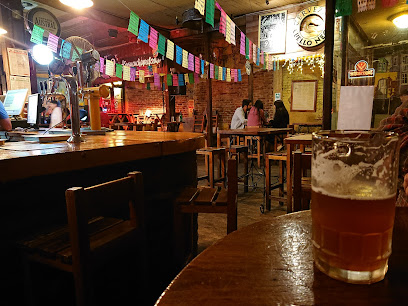
Bar Industria
Discover the vibrant nightlife at Bar Industria in Temuco, where delightful cocktails and a lively atmosphere await every visitor.
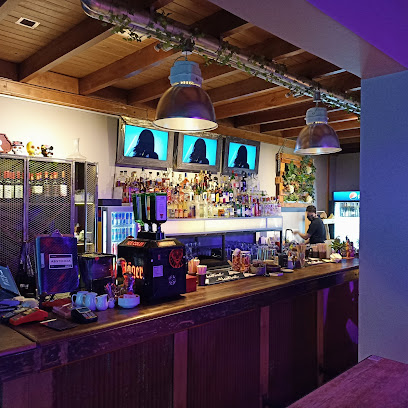
Barbudos
Discover Barbudos in Temuco - a lively bar offering an extensive drink menu, friendly atmosphere, and the best of local nightlife.
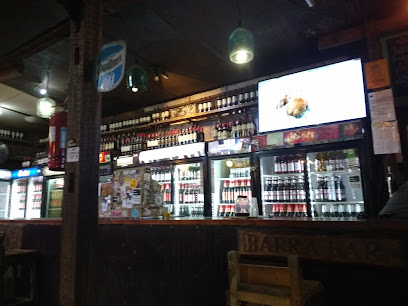
Boca de Lobos
Experience the lively ambiance and diverse drink selection at Boca de Lobos, Temuco's premier pub for locals and tourists alike.
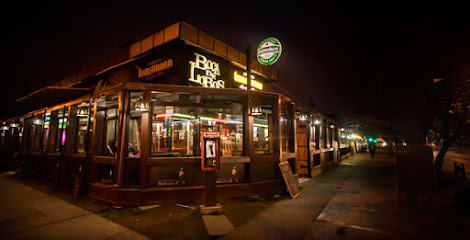
Pub La Perrera
Discover Pub La Perrera in Temuco, a vibrant bar offering a lively nightlife, local drinks, and a welcoming atmosphere perfect for tourists.
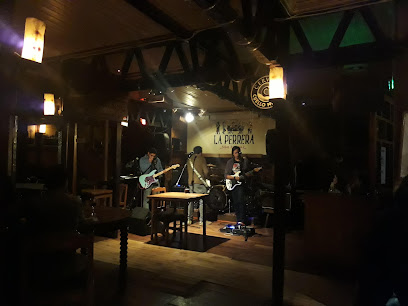
HANGAR18 BAR
Discover the vibrant atmosphere of Hangar18 Bar in Temuco, offering creative cocktails and lively entertainment in a modern setting.
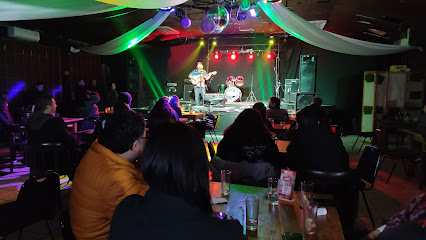
Bar And Restaurant Club WBO Limited
Discover the vibrant nightlife at Club WBO Limited in Temuco, where exceptional food, drinks, and entertainment await every visitor.
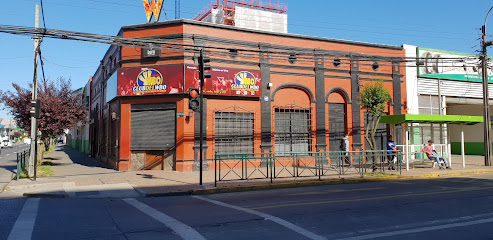
Local Phrases
-
- HelloHola
[O-la] - GoodbyeAdiós
[A-di-ós] - YesSí
[Sí] - NoNo
[No] - Please/You're welcomePor favor/De nada
[Por fa-vor/De na-da] - Thank youGracias
[Gra-cias] - Excuse me/SorryDisculpe/Perdón
[Dis-cul-pe/Per-dón] - How are you?¿Cómo estás?
[¿Có-mo es-tás?] - Fine. And you?Bien. ¿Y tú?
[Bien. ¿Y tú?] - Do you speak English?¿Hablas inglés?
[¿Ha-blas in-glés?] - I don't understandNo entiendo
[No en-tien-do]
- HelloHola
-
- I'd like to see the menu, pleaseMe gustaría ver el menú, por favor
[Me gus-ta-rí-a ver el me-nú, por fa-vor] - I don't eat meatNo como carne
[No co-mo car-ne] - Cheers!¡Salud!
[¡Sa-lud!] - I would like to pay, pleaseMe gustaría pagar, por favor
[Me gus-ta-rí-a pa-gar, por fa-vor]
- I'd like to see the menu, pleaseMe gustaría ver el menú, por favor
-
- Help!¡Ayuda!
[¡A-yu-da!] - Go away!¡Vete!
[¡Ve-te!] - Call the Police!¡Llama a la policía!
[¡Lla-ma a la po-li-cía!] - Call a doctor!¡Llama a un doctor!
[¡Lla-ma a un doc-tor!] - I'm lostEstoy perdido
[Es-toy per-di-do] - I'm illEstoy enfermo
[Es-toy en-fer-mo]
- Help!¡Ayuda!
-
- I'd like to buy...Me gustaría comprar...
[Me gus-ta-rí-a com-prar...] - I'm just lookingSolo estoy mirando
[So-lo es-toy mi-ran-do] - How much is it?¿Cuánto cuesta?
[¿Cuan-to cues-ta?] - That's too expensiveEso es demasiado caro
[E-so es de-ma-sia-do ca-ro] - Can you lower the price?¿Puede bajar el precio?
[¿Pue-de ba-jar el pre-cio?]
- I'd like to buy...Me gustaría comprar...
-
- What time is it?¿Qué hora es?
[¿Qué ho-ra es?] - It's one o'clockEs la una
[Es la u-na] - Half past (10)Media (10)
[Me-dia (10)] - MorningMañana
[Ma-ña-na] - AfternoonTarde
[Tar-de] - EveningNoche
[No-che] - YesterdayAyer
[A-yer] - TodayHoy
[Hoy] - TomorrowMañana
[Ma-ña-na] - 1Uno
[U-no] - 2Dos
[Dos] - 3Tres
[Tres] - 4Cuatro
[Cua-tro] - 5Cinco
[Cin-co] - 6Seis
[Seis] - 7Siete
[Sie-te] - 8Ocho
[O-cho] - 9Nueve
[Nue-ve] - 10Diez
[Diez]
- What time is it?¿Qué hora es?
-
- Where's a/the...?¿Dónde está un/el...?
[¿Dón-de es-tá un/el...?] - What's the address?¿Cuál es la dirección?
[¿Cual es la di-rec-ción?] - Can you show me (on the map)?¿Puedes mostrarme (en el mapa)?
[¿Pue-des mos-trar-me (en el ma-pa)?] - When's the next (bus)?¿Cuándo es el próximo (bus)?
[¿Cuan-do es el pró-xi-mo (bus)?] - A ticket (to ....)Un boleto (a ...)
[Un bo-le-to (a ...)]
- Where's a/the...?¿Dónde está un/el...?
History of Temuco
-
Temuco was officially founded on February 24, 1881, during the Occupation of Araucanía, a campaign by the Chilean government to incorporate the indigenous Mapuche territories into the national territory. The city was established as a military fort named 'Fuerte Recabarren,' which played a crucial role in securing the region for Chile.
-
The arrival of the railway in 1893 transformed Temuco into a significant commercial hub. The railways facilitated the movement of agricultural products, timber, and livestock, connecting the region to the rest of Chile and fostering economic growth. This period saw an influx of European immigrants, particularly Germans, who contributed to the cultural and economic development of the city.
-
Temuco is located in the heart of the ancestral land of the Mapuche people, who have a profound influence on the region's culture and history. The Mapuche resisted Spanish and Chilean attempts to conquer their territory for centuries. Today, their rich heritage is evident in local festivals, crafts, and cuisine, and the city's museums and cultural centers offer insights into their traditional way of life.
-
On December 22, 1908, a devastating fire swept through Temuco, destroying much of the city center. The fire marked a turning point in the urban development of Temuco, leading to the implementation of modern building regulations and fire prevention measures. The city's reconstruction efforts resulted in a more organized and resilient urban environment.
-
Founded in 1981, the University of La Frontera (Universidad de La Frontera) has become a cornerstone of higher education and research in southern Chile. The university plays a vital role in the social and economic development of Temuco and the surrounding region, fostering innovation and providing opportunities for local and international students.
-
In recent decades, Temuco has undergone significant modernization, with new infrastructure, commercial centers, and cultural institutions enhancing the city's appeal. The construction of the Araucanía Regional Museum and the Pablo Neruda National Railway Museum are notable examples of efforts to preserve and celebrate the region's history and culture. These developments have positioned Temuco as a vibrant and dynamic city, blending its rich heritage with contemporary growth.
Temuco Essentials
-
Temuco is situated in the Araucanía Region of Chile. The nearest airport is La Araucanía International Airport (ZCO), located about 20 kilometers south of the city center. Direct flights are available from Santiago, Chile's capital. The flight duration from Santiago to Temuco is approximately 1.5 hours. Alternatively, you can take a bus from Santiago, which is an 8 to 9-hour journey. Trains also operate between Santiago and Temuco, offering a scenic yet longer route.
-
Temuco has a variety of transportation options. The local bus system is extensive and affordable, serving most parts of the city. Taxis and ride-sharing services like Uber are also readily available. If you prefer more flexibility, car rentals are an option, though driving can be challenging due to local traffic conditions. Bicycles are another eco-friendly way to explore the city, thanks to recent improvements in bike lanes.
-
The official currency in Chile is the Chilean Peso (CLP). Credit and debit cards are widely accepted in most hotels, restaurants, and shops. However, it is advisable to carry some cash, especially for smaller establishments and markets. ATMs are plentiful in Temuco, and currency exchange services are available at the airport and in the city center.
-
Temuco is generally safe for tourists, but standard precautions should be taken. Avoid displaying valuables and keep an eye on your belongings in crowded places like markets and bus stations. Some areas, such as the neighborhoods of Padre Las Casas and Labranza, have higher crime rates, particularly at night. It is advisable to stay vigilant and avoid these areas after dark.
-
In case of emergency, dial 133 for the police, 131 for medical emergencies, and 132 for the fire department. Temuco has several hospitals and clinics that provide quality medical care. It is highly recommended to have travel insurance that covers medical emergencies. Pharmacies are also widely available for minor health issues or over-the-counter medications.
-
Fashion: Do dress in layers, as the weather can be unpredictable. Avoid wearing flashy jewelry. Religion: Do respect local religious customs. If visiting a church, dress modestly and remain quiet. Public Transport: Do be patient and polite. Give up your seat to elderly passengers. Don't eat or drink on public transport. Greetings: Do greet people with a handshake. A friendly 'Hola' is always appreciated. Eating & Drinking: Do try local dishes like 'curanto' and 'mote con huesillo.' Don't refuse food or drink offerings as it may be considered impolite.
-
To experience Temuco like a local, visit the Feria Pinto market, where you can buy fresh produce and local crafts. Engage with the Mapuche culture by visiting the Ruka Ngen Cultural Center. Don't miss the Ñielol Hill for panoramic views of the city. For a unique experience, attend a local football match at the Germán Becker Stadium.
Trending Landmark in Temuco
-
Plaza Anibal Pinto
-
Estadio Germán Becker
-
Parque Nacional Conguillio
-
Cerro Ñielol
-
Museo Nacional Ferroviario Pablo Neruda
-
Araucanía Airport (Temuco)
-
Cautín Island Urban Park
-
Reserva Nacional Malalcahuello
-
Torreon de los Canelos
-
El Salto Donguil Gorbea
-
Museo Regional de La Araucanía
-
St. Joseph Cathedral, Temuco
-
Mirador Isla Cautín
-
Monumento a Caupolicán
-
Monumento a La Araucanía
Nearby Cities to Temuco
-
Things To Do in Pucon
-
Things To Do in Valdivia
-
Things To Do in Osorno
-
Things To Do in Concepción
-
Things To Do in Bariloche
-
Things To Do in San Carlos de Bariloche
-
Things To Do in Puerto Varas
-
Things To Do in Curicó
-
Things To Do in Rancagua
-
Things To Do in San Rafael
-
Things To Do in Santiago
-
Things To Do in Valparaíso
-
Things To Do in Viña del Mar
-
Things To Do in Mendoza
-
Things To Do in San Juan










